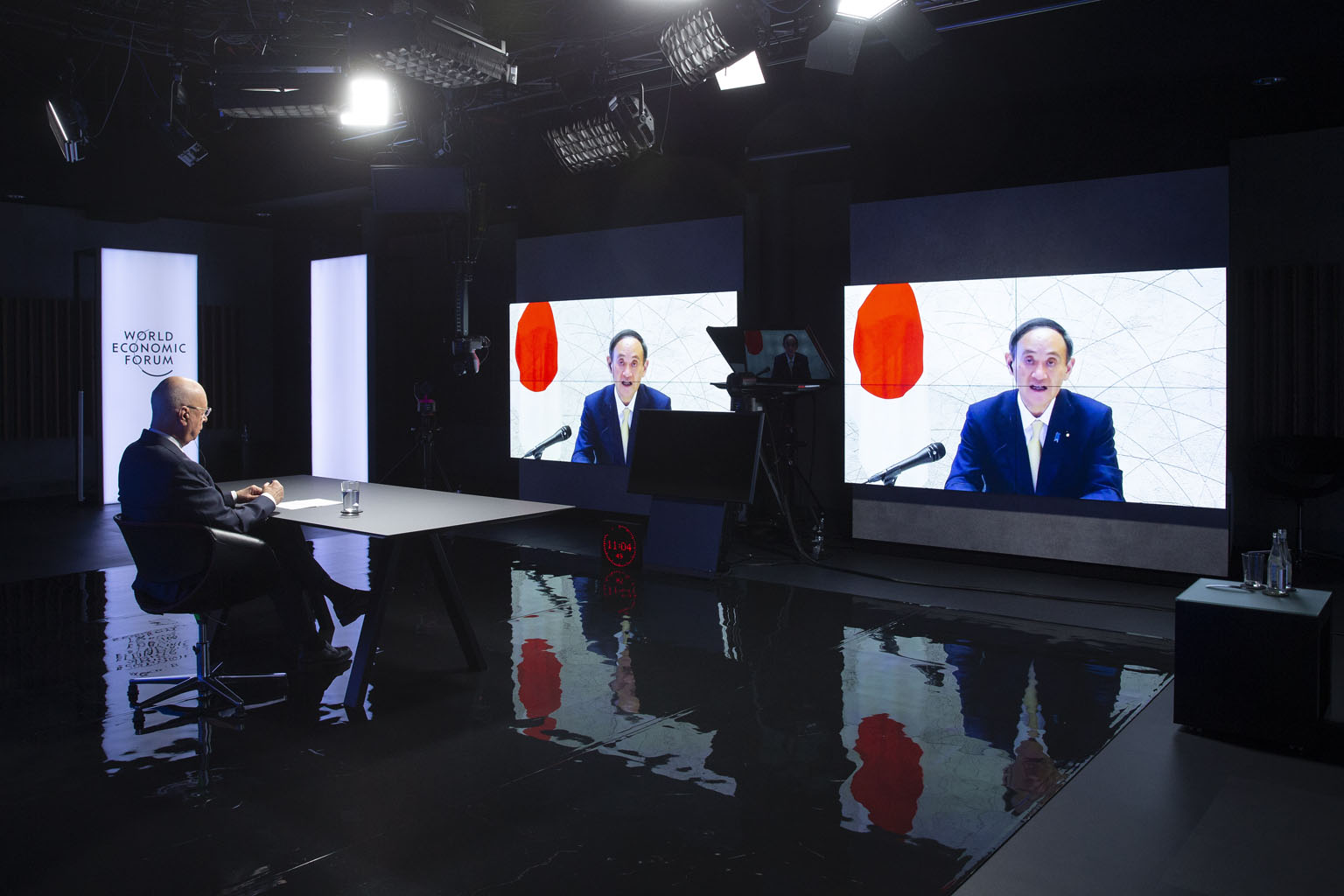Suga says Japan can lead world on multilateralism
Sign up now: Get insights on Asia's fast-moving developments

World Economic Forum founder and chairman Klaus Schwab watching Japanese Prime Minister Yoshihide Suga speak during a videoconference yesterday at the Davos Agenda in Cologny, near Geneva, Switzerland.
PHOTO: EPA-EFE
As tensions roil between the United States and China, Japanese Prime Minister Yoshihide Suga vowed yesterday to take the lead to sustain a multilateral world order in such areas as free trade, climate policy and digital innovation.
But above all else, he reiterated his resolve to hold the Tokyo Olympic and Paralympic Games as a "testimony of mankind prevailing over Covid-19 and as a symbol of unity of the world".
Mr Suga used his 25-minute online World Economic Forum Davos Agenda event to spell out a vision of a more confident Japan that has put behind years of bureaucratic, economic and technological stagnation that led to it being dwarfed by countries like China.
He told the forum that Japan, as the world's third-biggest economy and chair of the revised Trans-Pacific Partnership (TPP) trade deal this year, can make its voice heard and work with like-minded partners to move the global agenda.
"Amid protectionistic moves due to Covid-19, Japan will exercise leadership in efforts to expand free and fair economic areas and strengthen a rules-based multilateral free-trading system," he said.
"The solidarity of the global community has become ever more important. We will lead efforts in such areas as global health, realisation of a green community, and digital transformation to create a post-coronavirus order."
He cited potential innovations in renewables as key to propelling Japan towards its goal of achieving carbon neutrality by 2050, a process that can yield an economic impact of 190 trillion yen (S$2.4 trillion) and create jobs for 15 million people.
Japan can take the lead on free trade and intellectual property protections as this year's president of the 11-nation deal known formally as the Comprehensive and Progressive Agreement for Trans-Pacific Partnership.
Mr Suga said Japan's priorities were focused on market access and the "steady implementation and speedy expansion of a high-level TPP in terms of rules".
Several territories have indicated their interest, including China, South Korea, Taiwan and Thailand, though Britain will likely be the first to apply for membership.
Meanwhile, Mr Suga pledged to reinforce the Free and Open Indo-Pacific concept by working with regions like Asean, Australia, India, Britain and the European Union.
However, he made it clear that these multilateral efforts are not meant to exclude neighbours China and Russia - with which Japan hopes to foster closer ties - though it sees its alliance with the US as the "axis" of its diplomacy.
Nonetheless, Mr Suga will most urgently need to corral international buy-in for the Olympics, set to flag off on July 23, amid growing doubts over the event's fate.
With a second delay ruled out, Tokyo is either staring at an outright cancellation or to press on in a high-stakes gamble for Mr Suga in a crucial election year that will determine his political longevity.
"To realise a safe and secure Games, infection countermeasures are of paramount importance and we are in the process of studying the concrete substance of what we can do," he said.


